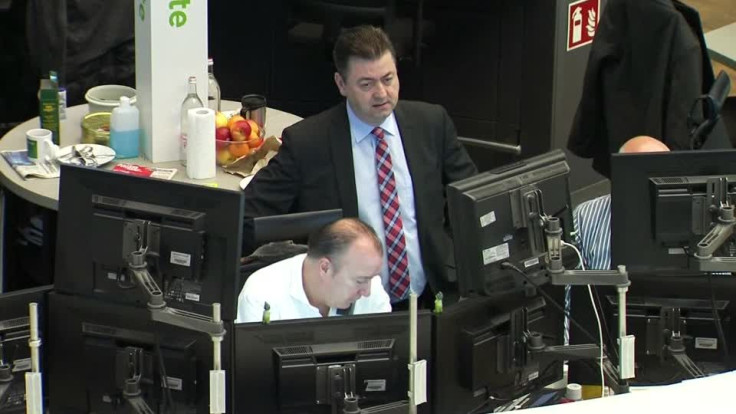Markets Bright Before Central Banks Meet

Shares rise in Europe and Asia, adding to gains chalked up after last week's stimulus package from the European Central Bank, as investors turn their attention to policy decisions from Washington, Tokyo and London. As Joel Flynn reports, all are battling slowing global growth, heightened market volatility and deflationary pressures.
Video Transcript:
A deep breath for investors this week, with much on the table, and in a year dominated by bad news, the signs so far are good.
Shares in Europe opening higher, led by Italian banks, as markets look to have finally made sense of ECB action last week.
In Asia shares outside Japan nudged up almost 0.8%, while the Nikkei, meanwhile, saw gains of more than 1.7%.
IG Market Analyst Chris Beauchamp: "We're in a period, March to May, where seasonality suggests that the S&P and other indices continue to do well, so the historical backing seems to suggest that we'll see more gains, but of course it does depend on what the central banks do and, of course, what the oil price does."
Global eyes now are firmly trained on Tokyo as markets wait for news from the BoJ.
In January it adopted negative interest rates.
Investors now betting that will remain the case at the end of its meeting.
Elsewhere optimism the Federal Reserve will forgo further interest rate rises later this week.
Conflicting economic drivers in the U.S. are complicating Janet Yellen's job there.
The U.S. is one of the few countries not fighting off deflation, but despite a growing jobs market adding to signs of strength, worries about the global economic environment remain.
Baader Bank Head of Capital Markets Analysis Robert Halver: "Some of the global problems have been tackled successfully. The oil price, for example, looks to have stabilized at a higher level, and China is managing its stock market better. This week's decision by the Fed won't result in a rate increase. Reversing rates is slowly making markets more volatile."
The Bank of England, too, is worrying ahead of a looming vote on British membership of the EU and a day after the UK budget.
It's likely to keep rates on hold.
© Copyright IBTimes 2024. All rights reserved.












